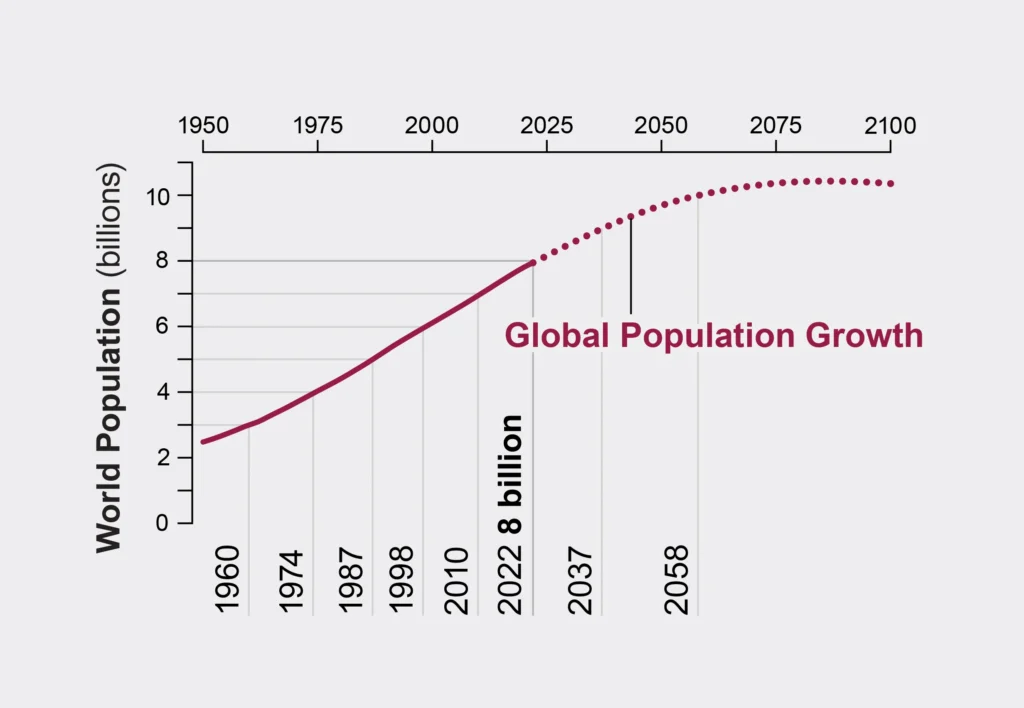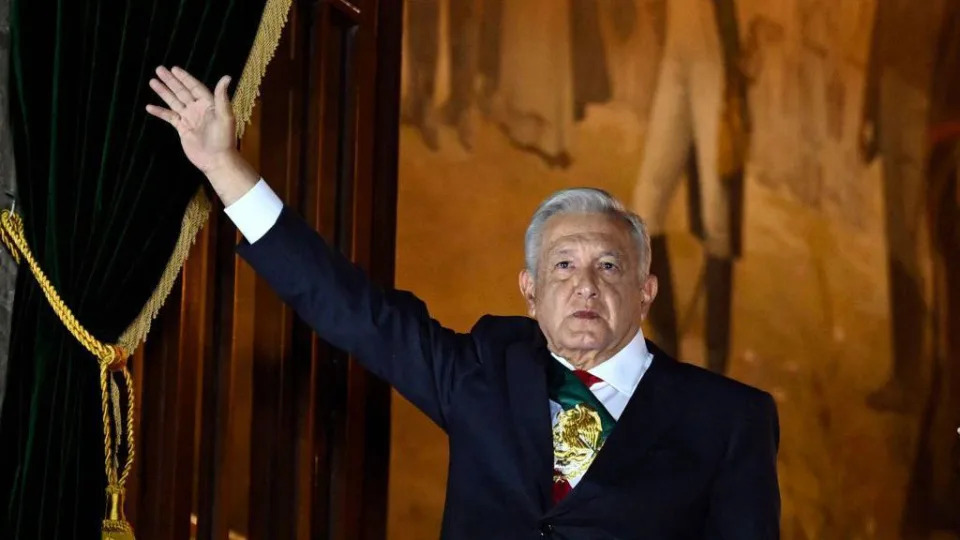How Patriarchal Pronatalism Dominates the Conversation about the Human Future

“Global Population Growth Is Slowing Down. Here’s One Reason Why,” Scientific American
Governments worldwide are in a race to see which one can encourage the most women to have the most babies. Hungary is slashing income tax for women with four or more children. Russia is offering women with 10 or more children a “Mother-Heroine” award. Greece, Italy, and South Korea are bribing women with attractive baby bonuses. China has instituted a three-child policy. Iran has outlawed free contraceptives and vasectomies. Japan has joined forces with the fertility industry to infiltrate schools to promote early childbearing. A leading UK demographer has proposed taxing the childless. Religious myths are preventing African men from getting vasectomies. A eugenics-inspired Natal conference just took place in the U.S., a nation leading the way in taking away reproductive rights.
The push for more babies to increase our numbers is hardly a new phenomenon. Longstanding forces of reproductive control have always favored population growth. These go back 5,000 years to the institutionalized male domination and patriarchy that emerged upon the rise of early states and empires centered in cities. Societies at the vanguard of civilization had two main goals: population expansion and seizure of resources. These were realized by coercing women to have as many children as possible and by pressuring men to become soldiers. Because of the dangers of both childbirth and war, birthing and soldiering had to be exalted and reinforced through social controls. To this day, pronatalism and militarism remain among patriarchy’s key features.
Its strength undiminished over the course of millennia, pronatalism serves powerful institutions of the state, the church, the military, and the economy by preaching that parenthood is an obligation, not a choice. Pronatalism runs so deep in our society, has become so pervasive, that to this day it colors the most important policy discussions and social norms.
As the Earth system groans under the burden of too many people consuming too much stuff, a new twist on this ubiquitous ideology – one that contemptuously sees women as mere procreative vessels – plays out on the global stage. While scientists warn that human numbers are a key driver of ecological and social crises, the subject of overpopulation gets short shrift by policymakers, think tanks, and even environmental groups. We are told that numbers don’t matter; what matters is solely the level of per capita consumption.
For example, when the revered Jane Goodall spoke about the harms of population growth, environmental journalist-cum-activist George Monbiot attacked her by insinuating that she was proposing the culling of people. Elsewhere he wrote, “It’s no coincidence that most of those who are obsessed with population growth are post-reproductive wealthy white men.”
I am a woman, born in India and now living in Canada, happily childfree as I near the end of my reproductive years. I am grateful to have a steady income, but I am not wealthy. Some might say I’m obsessed with overpopulation, though obsession isn’t the right term to describe a rational assessment of the role of population in the ecological degradation that makes humanity’s future precarious.
But Monbiot’s is just one example. Environmental journalist David Roberts acknowledges that population growth is a problem and then goes on to explain why “there’s much downside and not much upside to talking about population.” Katherine Hayhoe, chief scientist at The Nature Conservancy, an organization that has been accused of “promoting false climate solutions,” says in an interview, “As a climate scientist, I know that it’s not the number of people that matters. It’s how we live.” A formal statement by The Union of Concerned Scientists reads, “We’re sometimes asked ‘Isn’t population growth driving climate change?’ But that’s the wrong question—and it can lead to dangerous answers.”
Let’s unpack these statements, all of which fall into what political and social theorist Diana Coole has called the discourses of population denialism.
The first of these, “population shaming,” justifies silence about population by pointing to the excesses of “population control” movements of the past. And it is true that these coercive efforts deserve repudiation. Beginning in the 1970s, India forcibly sterilized millions of poor people (and it was backed in this endeavor by some Western powers). That was a dark moment in a benighted time, which focused on decreasing population growth in the lower-income countries rather than on moderating dramatically higher per capita consumption in the high-income countries.
But it would be fallacious, and a disservice to the valiant history of family planning, to suppose all approaches to curbing population growth are destructive. During and following India’s reprehensible conduct, family planning programs in Thailand, Costa Rica, Iran, and elsewhere not only advanced greater personal and reproductive autonomy for girls and women, but also led to significantly lower fertility rates, decreases in poverty, and gains in environmental conservation.
We know from historical experience that slowing population growth requires upholding fundamental human rights: championing universal education, prohibiting child marriage, empowering females, improving access to family planning services, and, most of all, standing up to patriarchy and pronatalism.
This relates to another oft-used and largely-superseded discourse of population denialism that “development” or economic growth is required to spur declines in fertility, a claim that plays directly into the hands of pro-growth neoliberal interests. Research shows that declining fertility rates, however, are most closely associated with increasing use of modern contraception and are largely independent of changes in the economy.
Disproportionately focusing on reproductive control efforts in the recent past, as so many environmentalists do, entirely misses the millennia-old chokehold of compulsive pronatalism in driving population growth—which makes these environmentalists unwitting accomplices of pronatalist patriarchy.
Equally as offensive is that population denialism defies scientific evidence.
In its 2022 report, the IPCC makes abundantly clear that “globally, GDP per capita and population growth remained the strongest drivers of CO2 emissions from fossil fuel combustion in the last decade.” In a 2024 survey conducted by The Guardian, leading IPCC scientists candidly discussed their decisions to have no or fewer children, citing as their main motivations the impact of overpopulation on climate change and the fear of bringing their potential children into a perilous world environment.
In 2017, over 15,000 scientists from 184 countries issued a warning that “we are jeopardizing our future by not reining in our intense but geographically and demographically uneven material consumption and by not perceiving continued rapid population growth as a primary driver behind many ecological and even societal threats.” Other Scientists’ Warnings have raised similar alarms.
In 2022, the UN Convention to Combat Desertification warned that “within the next few decades, 129 countries will experience an increase in drought – 23 primarily due to population growth and 38 because of their interaction between climate change and population growth.”
In its 2022 report, the UN Department of Social and Economic Affairs warned that “rapid population growth makes it more difficult for low-income and lower-middle-income countries to afford the increase in public expenditures on a per capita basis that is needed to eradicate poverty, end hunger and malnutrition, and ensure universal access to health care, education and other essential services.”
It goes without saying that hyper-consumerism and affluence-seeking in rich countries have played an outsized role in these crises, yes. But to focus on consumerism alone misses the full complexity of the world problematique.
The global middle class is the fastest rising demographic group, with at least one billion people—88% from Asia—projected to join it this decade, totaling 5.3 billion middle-class consumers. And other poorer billions surely have the right to increase their standard of living. Given that we are already in an extreme state of ecological overshoot, in which we are consuming 75% percent more than Earth can regenerate, further growth in our population and economy can only come at the expense of biophysical Earth systems, which means increased peril to our collective future. Refusing to deal with the twin threats of population and consumption, both of which are at unsustainable levels, only accelerates the destruction of other life and puts us on a long-term trajectory of immiseration of billions of people.
Meanwhile, some politicians and pundits seem to believe the great threat to humankind is a shrinking economy driven by declining fertility rates and aging populations — that is, the threat is not too many people but too few. “Population declinism,” as this is known—another tentacle of population denialism—is what is fueling the global trend of pushing women to pump out the babies.
Even amid declining fertility rates due to greater gender equality, global population is still growing by about 80 million people annually, just as in 1970, adding a projected 2.5 billion before the end of this century.
Observers of the panic about declining fertility rates, such as Nobel laureate Steven Chu, have suggested that we are caught in a “Ponzi scheme” of endless growth that is “based on having more young workers than older people.” This unsustainable and ecologically-destructive scheme, which relies on an ever-increasing population, mostly serves the interests of tech billionaires, elites like Elon Musk, and the ideologies of far-Right, religious, natio
Not only has population denialism among progressives emboldened the far Right to pursue its pronatalist agenda of rolling back reproductive rights, passing stricter divorce laws, and relaxing domestic violence laws, progressives are now joining the chorus of “baby-bust” alarmism.
Media outlets regularly platform growth-biased pieces: this in the New York Times by an author whose organization received $10 million from Elon Musk for “fertility research”; this, this, and this in the Washington Post by contributors affiliated with the American Enterprise Institute, a right-wing think tank with a history of climate denial and whose funders include ExxonMobil and the Koch brothers; and this by Vox in their Future Perfect section, a billionaire-funded project embedded in the deeply controversial effective altruism philosophy.
More disturbingly, attempts to challenge pronatalism today are strategically conflated by these pro-growth actors with anti-natalism, baby hating, or misanthropy.
Meanwhile, the rights of children to be born into conditions conducive to their social, psychological, and material well being are all but trampled as nations compete to pump out, by any means necessary, the next generation of worshippers, workers, consumers, taxpayers, soldiers, and of course, procreators. Warnings from leading authorities about dire population-driven consequences for children in the form of climate change impacts and extreme poverty, among others, go unheeded.
The alarmism surrounding declining fertility rates is unfounded; it is a positive trend that represents greater reproductive choice, and one that we should accelerate. A smaller human population will immensely facilitate other transformations we need: mitigating climate change, conserving and rewilding ecosystems, making agriculture sustainable, and making communities more resilient and able to integrate more climate and war refugees.
Research shows that societies with smaller populations and aging demographics can prosper. Instead of coercing women to have more babies, we can adopt progressive policies that strengthen social safety nets, wisely reallocate resources, and see seniors as meaningful contributors to society rather than a growing burden on a shrinking pool of younger workers. We can shift the failed paradigm of endless growth and transition to an economy that respects the biophysical limits of our planet.
It’s time to reject “population shaming” that pretends to champion human rights while echoing pronatalist ideologies that treat women’s wombs as cogs in the growth machine. To defend the right of all to a livable future, we need to get off the growth treadmill, get past population denialism, and work for a future that has both fewer human beings and less consumption,









